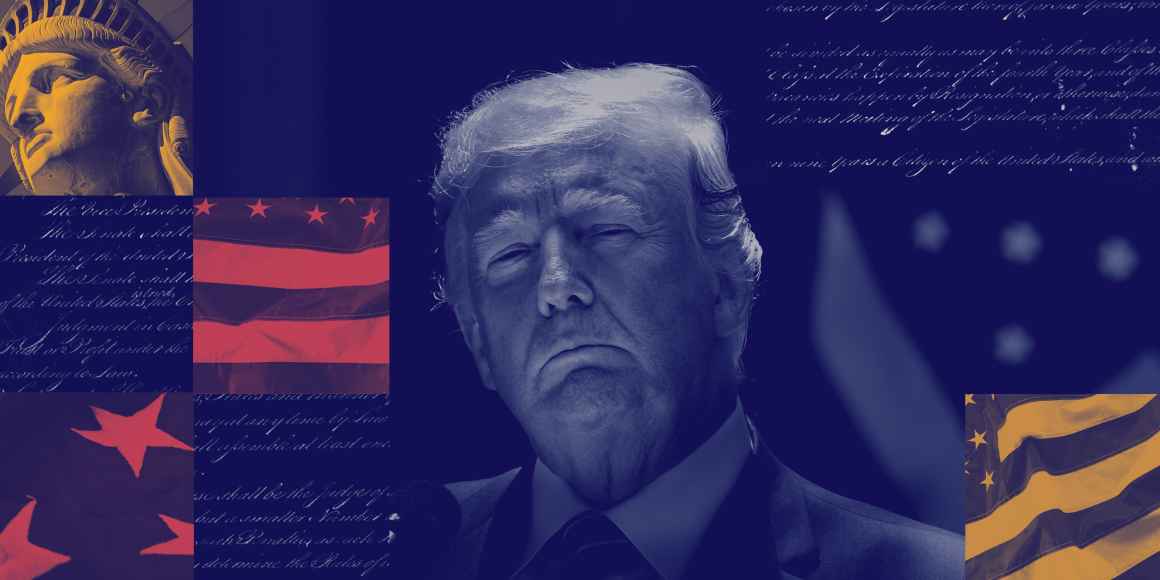Voting Rights
League of Women Voters Education Fund v. Trump
On March 25, 2025, in a sweeping and unprecedented Executive Order, President Trump attempted to usurp the power to regulate federal elections from Congress and the States. Among other things, the Executive Order directs the Election Assistance Commission—an agency that Congress specifically established to be bipartisan and independent—to require voters to show a passport or other citizenship documentation in order to register to vote in federal elections. If implemented, the Executive Order would threaten the ability of millions of eligible Americans to register and vote and upend the administration of federal elections.
On behalf of leading voter registration organizations and advocacy organizations, the ACLU and co-counsel filed a lawsuit to block the Executive Order as an unconstitutional power grab.
Status: Ongoing
View Case
Learn About Voting Rights Featured
U.S. Supreme Court
Mar 2025

Voting Rights
Callais v. Landry
Whether the congressional map Louisiana adopted to cure a Voting Rights Act violation in Robinson v. Ardoin is itself unlawful as a gerrymander.
New York
Jan 2025
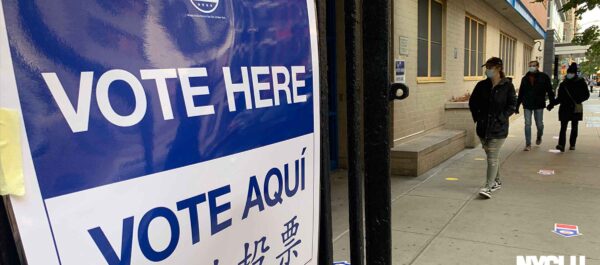
Voting Rights
New York Communities for Change v. Nassau County
Voters of color in Nassau County, N.Y., are no strangers to having to organize to ensure their votes count. But in 2023, the county’s Legislature took vote dilution to new heights. In places like Elmont, Freeport, Inwood, Lakeview, South Valley Stream, New Hyde Park, and Uniondale, the Legislature “cracked and packed” communities of color with the effect of squashing their growing electoral power. But the landmark John R. Lewis Voting Rights Act of New York (NYVRA), enacted in 2022, and the New York Municipal Home Rule Law prohibit New York State and localities from diluting the voting strength and political influence of Black, Latino, and Asian residents.
Louisiana
Jan 2025

Voting Rights
Nairne v. Landry
Nairne v. Landry poses a challenge under Section 2 of the Voting Rights Act of 1965 to Louisiana’s House and Senate legislative maps on behalf of plaintiff Black voters and Black voters across the state.
Georgia
Oct 2024

Voting Rights
Eternal Vigilance Action, Inc. v. Georgia
The ACLU and partner organizations have sought to intervene in this case to represent the rights of voters and voting-rights organizations in a case challenging a number of rules passed by the Georgia State Election Board. We challenge a rule that requires that the number of votes cast be hand counted at the polling place prior to the tabulation of votes. This rule risks delay and spoliation of ballots, putting in danger voters’ rights to have their votes count.
Texas
Oct 2024
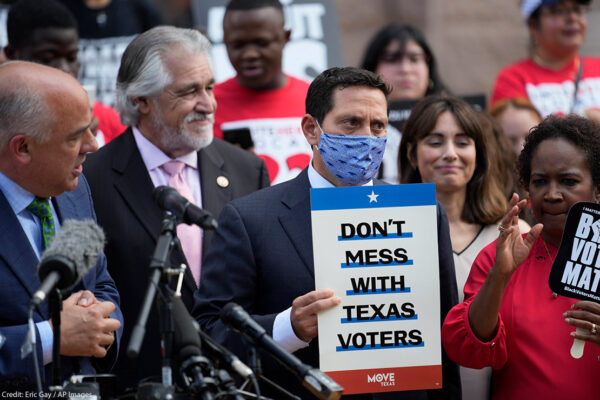
Voting Rights
OCA-Greater Houston v. Paxton
Texas has growing Hispanic and Black populations that helped propel record voter turnout in the November 2020 election. The Texas Legislature responded to this increased civic participation with an omnibus election bill titled Senate Bill 1—SB 1 for short—that targeted election practices that made voting more accessible to traditionally marginalized voters like voters of color, voters with disabilities, and voters with limited English proficiency. Since 2021, SB 1 has resulted in tens of thousands of lawful votes being rejected, and it remains a threat to democracy in Texas.
Ohio
Jul 2024
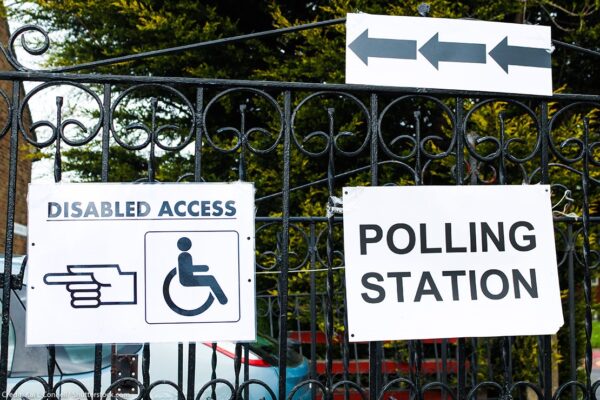
Voting Rights
League of Women Voters of Ohio v. LaRose
In Ohio, HB 458 makes it a felony for any person who is not an election official or mail carrier to return an absentee voter's ballot—including voters with disabilities—unless the person assisting falls within an unduly narrow list of relatives. We are challenging the law because it violates Section 208 of the Voting Rights Act (VRA) and the American with Disabilities Act (ADA) by making it exceedingly difficult for voters with disabilities to cast their ballots.
Stay informed about our latest work in the courts.
By completing this form, I agree to receive occasional emails per the terms of the ACLU's privacy statement.
All Cases
150 Voting Rights Cases
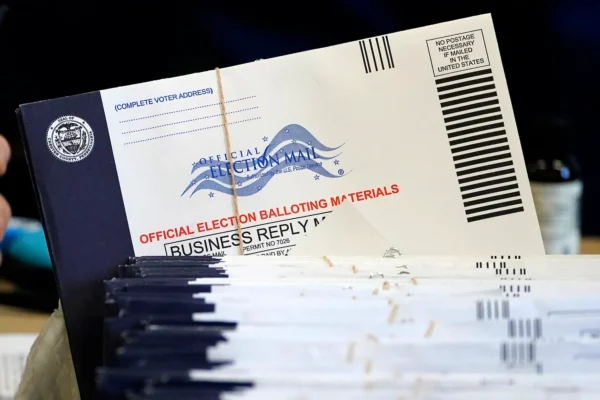
Pennsylvania Supreme Court
Mar 2025
Voting Rights
Baxter v. Philadelphia Board of Elections
Eligible Philadelphia-area voters who submitted mail ballots in the September 17, 2024 special election only to have their votes set aside because they omitted or miswrote the correct date on their outer return envelope – even though the date is not used for any purpose – sued to have their votes count. Plaintiffs urge the courts to rule that enforcing the irrelevant envelope-dating requirement to disenfranchise eligible voters violates the Pennsylvania Constitution's Free and Equal Elections Clause.
Explore case
Pennsylvania Supreme Court
Mar 2025

Voting Rights
Baxter v. Philadelphia Board of Elections
Eligible Philadelphia-area voters who submitted mail ballots in the September 17, 2024 special election only to have their votes set aside because they omitted or miswrote the correct date on their outer return envelope – even though the date is not used for any purpose – sued to have their votes count. Plaintiffs urge the courts to rule that enforcing the irrelevant envelope-dating requirement to disenfranchise eligible voters violates the Pennsylvania Constitution's Free and Equal Elections Clause.
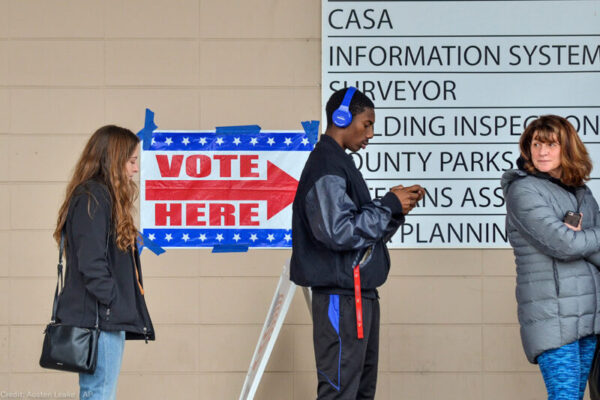
New Hampshire
Mar 2025
Voting Rights
Coalition for Open Democracy v. Scanlan
This lawsuit challenges HB 1569, a new law that will make New Hampshire the only state to require every person to produce documentary proof of citizenship when they register to vote for both state and federal elections. It also challenges HB 1569’s elimination a preexisting protection for voters—namely, an affidavit option that allowed voters who faced surprise challenges to their eligibility at the polls to swear to their qualifications and cast a ballot. Accordingly, HB 1569 violates the First and Fourteenth Amendments of the U.S. Constitution by placing substantial burdens on New Hampshirites at all stages of the voting process, and will arbitrarily disenfranchise hundreds, if not thousands of qualified voters.
Explore case
New Hampshire
Mar 2025

Voting Rights
Coalition for Open Democracy v. Scanlan
This lawsuit challenges HB 1569, a new law that will make New Hampshire the only state to require every person to produce documentary proof of citizenship when they register to vote for both state and federal elections. It also challenges HB 1569’s elimination a preexisting protection for voters—namely, an affidavit option that allowed voters who faced surprise challenges to their eligibility at the polls to swear to their qualifications and cast a ballot. Accordingly, HB 1569 violates the First and Fourteenth Amendments of the U.S. Constitution by placing substantial burdens on New Hampshirites at all stages of the voting process, and will arbitrarily disenfranchise hundreds, if not thousands of qualified voters.
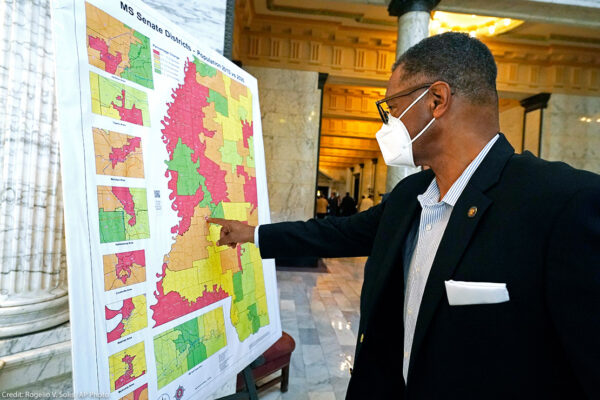
Mississippi
Mar 2025
Voting Rights
Mississippi State Conference of the NAACP v. State Board of Election Commissioners
Mississippi has a growing Black population, which is already the largest Black population percentage of any state in the country. Yet. Black Mississippians continue to be significantly under-represented in the state legislature, as Mississippi’s latest districting maps fail to reflect the reality of the state’s changing demographics. During the 2022 redistricting process, the Mississippi legislature refused to create any new districts where Black voters have a chance to elect their preferred representative. The current district lines therefore dilute the voting power of Black Mississippians and continue to deprive them of political representation that is responsive to their needs and concerns, including severe disparities in education and healthcare.
Explore case
Mississippi
Mar 2025

Voting Rights
Mississippi State Conference of the NAACP v. State Board of Election Commissioners
Mississippi has a growing Black population, which is already the largest Black population percentage of any state in the country. Yet. Black Mississippians continue to be significantly under-represented in the state legislature, as Mississippi’s latest districting maps fail to reflect the reality of the state’s changing demographics. During the 2022 redistricting process, the Mississippi legislature refused to create any new districts where Black voters have a chance to elect their preferred representative. The current district lines therefore dilute the voting power of Black Mississippians and continue to deprive them of political representation that is responsive to their needs and concerns, including severe disparities in education and healthcare.

North Carolina
Mar 2025
Voting Rights
Griffin v. North Carolina Board of Elections (Amicus)
This case arises from the November 2024 election for state supreme court justice in North Carolina. Incumbent State Supreme Court Justice Allison Riggs defeated Court of Appeals Judge Jefferson Griffin, but Griffin has filed a petition seeking to invalidate more than 65,000 votes from the election. He argues that the state Board of Elections impermissibly allowed 60,000 people to register without providing their driver’s licenses or social security numbers, and that the Board impermissibly allowed 5,500 overseas voters to cast absentee ballots without photo identification. The petition has resulted in both federal and state litigation, and the ACLU has submitted amicus briefs in both venues. In the U.S. Court of Appeals for the Fourth Circuit, the ACLU’s Voting Rights Project and the ACLU of North Carolina filed an amicus brief explaining that the petition’s attempt to cancel tens of thousands of votes threatens democratic backsliding in North Carolina. Separately, in the North Carolina Court of Appeals, the ACLU’s State Supreme Court Initiative and the ACLU of North Carolina submitted an amicus brief explaining that, even if the Board did make mistakes, cancelling votes as a consequence of those mistakes would violate the popular sovereignty provision of the North Carolina Constitution because voters relied on the Board to know how to register and vote.
Explore case
North Carolina
Mar 2025

Voting Rights
Griffin v. North Carolina Board of Elections (Amicus)
This case arises from the November 2024 election for state supreme court justice in North Carolina. Incumbent State Supreme Court Justice Allison Riggs defeated Court of Appeals Judge Jefferson Griffin, but Griffin has filed a petition seeking to invalidate more than 65,000 votes from the election. He argues that the state Board of Elections impermissibly allowed 60,000 people to register without providing their driver’s licenses or social security numbers, and that the Board impermissibly allowed 5,500 overseas voters to cast absentee ballots without photo identification. The petition has resulted in both federal and state litigation, and the ACLU has submitted amicus briefs in both venues. In the U.S. Court of Appeals for the Fourth Circuit, the ACLU’s Voting Rights Project and the ACLU of North Carolina filed an amicus brief explaining that the petition’s attempt to cancel tens of thousands of votes threatens democratic backsliding in North Carolina. Separately, in the North Carolina Court of Appeals, the ACLU’s State Supreme Court Initiative and the ACLU of North Carolina submitted an amicus brief explaining that, even if the Board did make mistakes, cancelling votes as a consequence of those mistakes would violate the popular sovereignty provision of the North Carolina Constitution because voters relied on the Board to know how to register and vote.
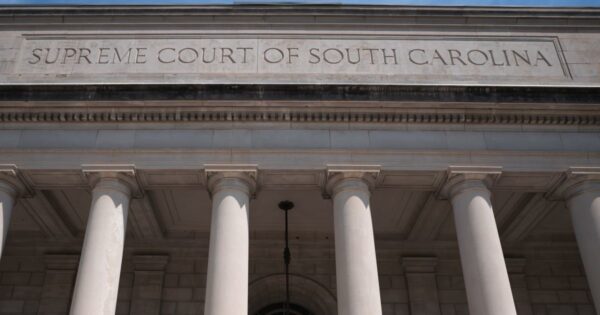
South Carolina Supreme Court
Jan 2025
Voting Rights
League of Women Voters of South Carolina v. Alexander
This case involves a state constitutional challenge to South Carolina’s 2022 congressional redistricting plan, which legislators admit was drawn to entrench a 6-1 Republican majority in the state’s federal delegation. Plaintiff the League of Women Voters of South Carolina has asked the state’s Supreme Court to conclude that the congressional map is an unlawful partisan gerrymander that violates the state constitution.
Explore case
South Carolina Supreme Court
Jan 2025

Voting Rights
League of Women Voters of South Carolina v. Alexander
This case involves a state constitutional challenge to South Carolina’s 2022 congressional redistricting plan, which legislators admit was drawn to entrench a 6-1 Republican majority in the state’s federal delegation. Plaintiff the League of Women Voters of South Carolina has asked the state’s Supreme Court to conclude that the congressional map is an unlawful partisan gerrymander that violates the state constitution.
